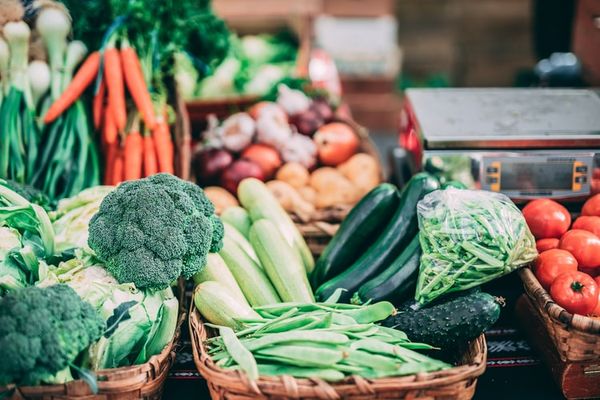Back in March, when rumors started to fly about a potential lockdown, my mom and I got an email from a local farm that was offering a special selection of produce. We drove an hour outside of town to pick up our vegetables, and we weren’t the only ones. There were already people waiting who had driven 45 minutes or more for fresh produce when a grocery store would have been far more convenient. This particular farm was in North Carolina, but the same thing is happening in Greenville as well. Clearly, the COVID-19 crisis has created a demand for more than just paper products.
Local farmers have seen a significant spike in sales and interest in produce over the last few months of the pandemic. While farmers are now missing out on income they usually receive from restaurants, produce sales at farmers markets have skyrocketed. Sammy Koenigsburg from Newtown Farms in North Carolina said, “I have seen a definite increase in farmers market sales that has made up for what we have lost in restaurant sales.” Farmers have also seen lines continue to grow outside their stalls over past months. Most markets were closed during lockdown, but as businesses in Greenville began to open again, people rushed to the markets for local produce. Wendy Lowry, who runs Nature’s Peace Farm in Travelers Rest, sells her produce at several venues, including Traveler’s Rest Farmers Market. Lowry said, “our Farmers Market client numbers are higher than we expected. Despite restricting the number of customers permitted…we often have a line much of the day.” Although there have been changes and adjustments over the past months, farms like Nature’s Peace are experiencing more demand for their products than ever before.
Food scarcity, both during and after lockdown, has been an issue that has driven more people to search out alternative ways of purchasing and producing food. According to Sammy Koenigsburg, “there has been some panic about availability of well farmed local food…which has made for long lines at farmer’s markets.” Even though food availability has leveled off, those who have access to farmers markets are still choosing to buy their produce from local farms, rather than risk virus exposure in crowded grocery stores.
For the same reason, many clients are purchasing starter plants from local farmers so that they can grow vegetables themselves. Wendy Lowery said, “A lot of people have been buying starter plants from us. They want to grow their own food because they don’t trust grocery stores to have what they need.” In a period of uncertainty and constant change, consumers are finding comfort in a more consistent, personal, and hands-on approach to food. Whether in North or South Carolina, farmers are optimistic about the future of local farms, and customers are seeing the value of locally grown food. Koenigsburg said, “I think [that because] a good immune system is one of the only known tools in our Corona arsenal…people are considering clear food sources.” Nutrition, safety, and certainty have never been more important. The long lines outside farmers markets are a testament to the invaluable role that local farms play in their communities, especially in times of crisis.
